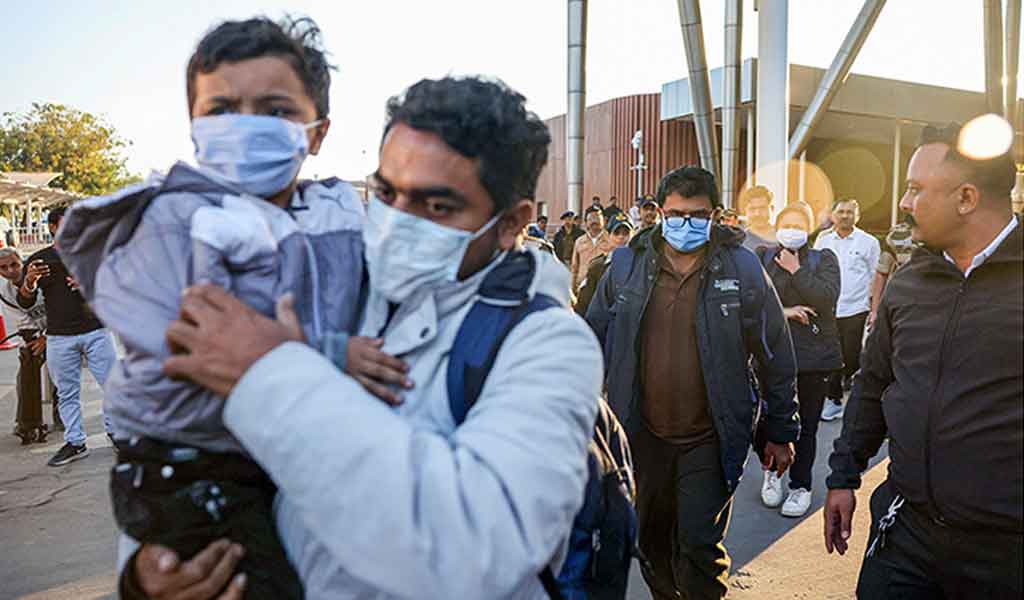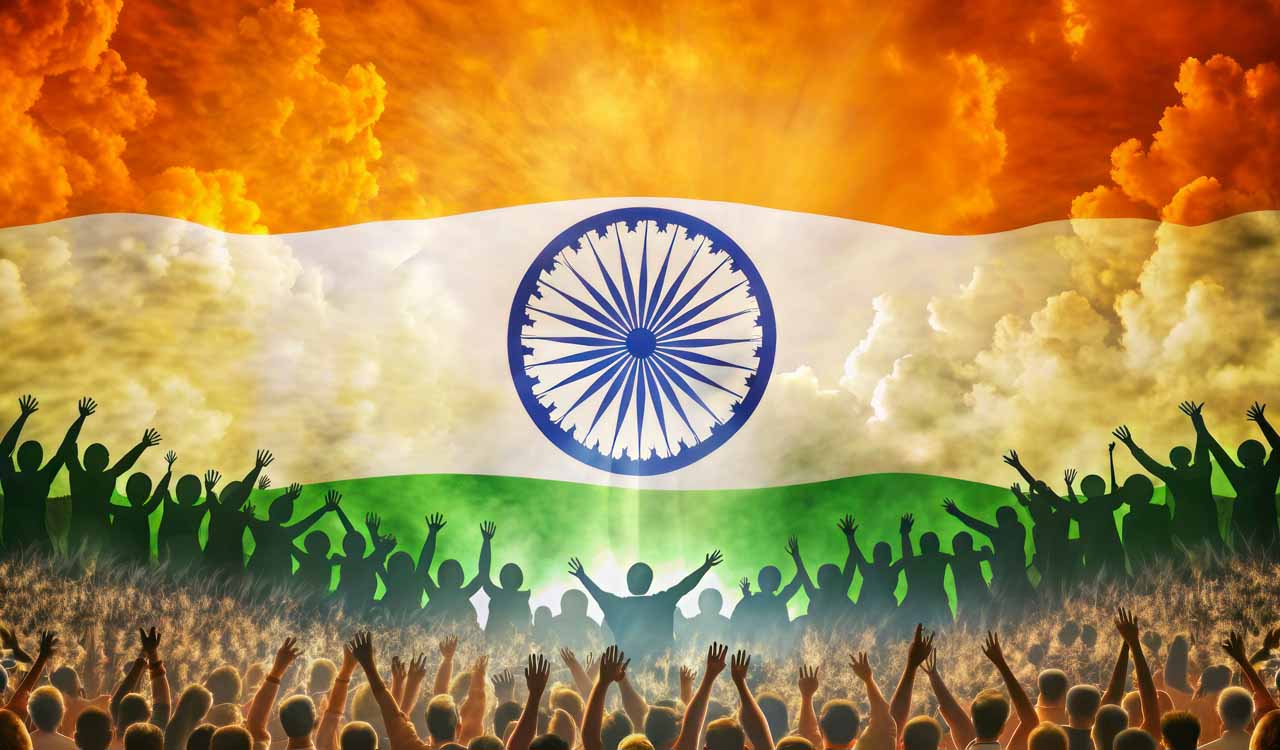Opinion: Can Trump’s birthright citizenship order curb illegal immigration?
By altering a long-standing pillar of US immigration law, Trump’s move has the potential to reshape global perceptions of citizenship, migration and opportunity

Dr Anudeep Gujjeti, Dr Akhil Kumar
Domestic policies of major powers, such as the United States, often have far-reaching consequences that transcend its borders, impacting citizens and governments worldwide. A striking example of this dynamic is the executive order issued by newly elected President Donald Trump, aimed at reinterpreting and effectively abolishing birthright citizenship in the US.
Also Read
This landmark policy decision carries profound implications, particularly for Indians residing in the US and those aspiring to move there in pursuit of better livelihood opportunities. According to the US Census Bureau, the Indian American population stood at over 5.4 million as of 2024, constituting approximately 1.47 per cent of the total US population.
Within this demographic, roughly two-thirds are first-generation immigrants, while the remaining one-third are US-born citizens. Indian companies receive a significant portion of the H-1B visas issued each year. As of 2023, over 2.9 million Indian immigrants were residing in the US. By altering a long-standing pillar of US immigration law, this move has the potential to reshape global perceptions of citizenship, migration, and opportunity.
Birth Right
On his first day in office, President Trump signed an executive order titled “Protecting the Meaning and Value of American Citizenship,” which redefines the parameters of birthright citizenship as guaranteed by the 14th Amendment to the US Constitution. Birthright citizenship in the US is based on the principle of jus soli, which asserts that an individual’s citizenship is determined by the place of their birth. Historically, the citizenship clause, adopted in 1868, granted citizenship to all individuals born on US soil, regardless of their parents’ immigration status. This principle was reinforced in landmark rulings such as United States vs Wong Kim Ark (1898), which affirmed that a child born to non-citizen parents in the US is entitled to citizenship by birth.
This executive order is viewed as a fulfilment of President Trump’s election promise to crack down on illegal immigration, introducing stringent restrictions as a result. Under the new policy, a child born in the US will not be granted citizenship if the mother was unlawfully present in the country and the father was neither a US citizen nor a lawful permanent resident at the time of the child’s birth. Further, even if the mother’s presence in the US was lawful but temporary such as on a tourist, student or work visa, the child would still be ineligible for citizenship if the father did not hold US citizenship or lawful permanent resident status.
These provisions are aimed at curbing what President Trump and his supporters refer to as “birth tourism” and the alleged exploitation of the 14th Amendment. If enforced, the order could deny citizenship and restrict access to essential benefits such as social security numbers, lawful employment and government aid. Several lawsuits have been filed against the order, primarily in States led by Democrats and civil society groups. Two federal judges have given temporary restraining orders to block its implementation.
Deportations
According to the annual report released by US Immigration and Customs Enforcement in December 2024, citizens from India represent the fourth-largest group of those detained. In 2024, a total of 2,647 Indians were detained, with chartered flights being deployed to deport them to India. In fact, “Irregular migration” also came up during a discussion between Indian External Affairs Minister Dr S Jaishankar, and new US Secretary of State Marco Rubio in Washington in their first bilateral meeting held after Trump’s swearing-in ceremony.
Since 2013-14, the US has deported an average of over 2 lakh individuals annually. Deportations saw a significant decline during the pandemic years, a trend observed under both the Trump and Biden administrations. During his second term, President Barack Obama deported more than one million people. While Indians are not among the top nationalities for deportation, they lead within the South Asian region. India ranks 12th on the list of countries with the highest number of citizens deported from the US, making it the only country outside the Americas in the top 20.
In 2024, India ranked second among the top five countries of birth for individuals naturalising in the US, accounting for 6.1 per cent of all naturalised citizens, just below Mexico (13.1 per cent)
Nonetheless, the merits of the order remain for the US government, its citizens and its courts to decide, as it is an internal matter. However, the potential end of birthright citizenship could influence decision-making at the grassroots level in India. For example, families planning to send their children to the US for education, work or permanent residency might reconsider their plans due to these restrictive policies.
Although US regulations permit international students on F-1 visas to work up to 20 hours per week on-campus, many resort to off-campus or undocumented employment at establishments such as restaurants, gas stations and retail stores to cover essential living expenses like rent and groceries. However, with the current administration signalling an intention to tighten immigration policies and impose more stringent regulations, these students are now, with great reluctance, forfeiting their jobs, unwilling to compromise their future prospects.
Indian Students
India continues to be the largest source of international students in the United States, with approximately 3.50,000 Indian students currently enrolled in US institutions. This number has seen a notable increase, rising by 23% in the 2023-24 academic year, with undergraduate enrolment growing by nearly 13%. This upward trend highlights the growing importance of the US as a destination for Indian students seeking higher education and career advancement. The tightening of immigration policies and the potential erosion of birthright citizenship have created an atmosphere of anxiety among students.
For many immigrants, the routine of renewing temporary visas every few years has become a familiar part of their lives, all while nurturing the hope that their children will one day become US citizens and grow up in the country. In 2024, India ranked second among the top five countries of birth for individuals naturalising in the US, accounting for 6.1% of all naturalised citizens, just below Mexico (13.1%), according to data from the US Citizenship and Immigration Services.
In an era where international mobility is a key aspect of personal and professional development, the discussions surrounding deglobalisation cannot overshadow the fundamental reality that globalisation, in its various forms, continues to shape economic, political and social landscapes worldwide.
The convergence of domestic and international policies further underscores the complexities of global governance, as actions taken within a single nation can reverberate across borders, affecting everything from immigration rules to trade agreements. This interdependence calls for a more holistic understanding of global affairs as policy changes in major powers can drastically influence the lives of citizens in distant countries. For nations such as India, which represents a substantial portion of the US immigrant population, comprehending and anticipating shifts in policy is not merely important but also essential.

(Dr Anudeep Gujjeti is Assistant Professor, Centre of Excellence for Geopolitics and International Studies, REVA University & Young Leader, Pacific Forum, US, and Dr Akhil Kumar is a PhD from Department of Political Science, University of Hyderabad)
Related News
-
Chairperson polls in three municipalities deferred again as Congress unleashes anarchy
7 mins ago -
25th batch of police canines, handlers pass out at IITA Moinabad
2 hours ago -
Kharge slams AI Summit management, alleges global embarrassment
2 hours ago -
PM Modi calls India AI Impact Expo 2026 powerful convergence
2 hours ago -
Writing code will not be main goal in AI era: Infosys Chairman
2 hours ago -
India contributes 16 per cent of world AI talent, white paper reveals
2 hours ago -
Kukatpally family conducts funeral after days of prayers for deceased
3 hours ago -
Hyderabad-based startup to begin human clinical trials for India’s first AI-driven antibiotic
3 hours ago




